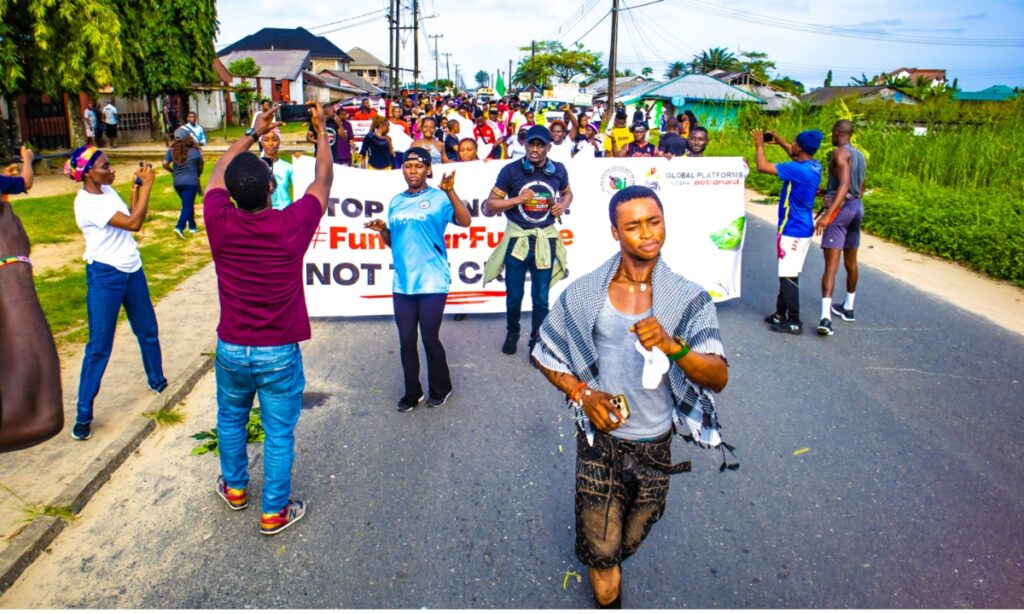
Ibeno Community Pushes for Sustainable Energy Solutions
Youths in Ibeno Local Government Area of Akwa Ibom State have issued a strong call to oil and gas companies operating in the region: invest in renewable energy and agroecology instead of activities that worsen environmental and social crises.
The demand was made during a Die-In Climate Protest at the Ibeno LGA headquarters as part of the 2025 Global Week of Climate Action, organized by ActionAid Nigeria in partnership with the Clement Isong Foundation (CIF).
Ibeno, one of Nigeria’s major oil-producing communities, has endured decades of pollution, gas flaring, and environmental degradation—factors that continue to threaten health, food production, and local livelihoods.
“Fund the Future, Not Crisis” — Youth Leaders Speak
Addressing the protesters, Kofi Asuquo, President of the Ibeno Youth Advocacy Network (IYAN), highlighted the long-term damage caused by gas flaring and extractive activities in the area.
According to him, the ongoing energy transition must prioritize the people who face these impacts daily.
He said:
“We are demanding a just transition—one that includes young people, listens to our experiences, and supports solutions that secure our future. Oil companies should redirect their funding to renewable energy, agroecology, and policies that involve local youth. Exploration alone cannot continue while our communities suffer.”
Asuquo emphasized that any development strategy must reflect the realities and aspirations of Ibeno people.
ActionAid: Transition Must Be Fair, Inclusive, and Community-Driven
Speaking at the event, Friday Ogezi, representing ActionAid Nigeria, described the protest as a space for young people and community organizations to speak up about climate policies, funding gaps, and the need for alternatives that support sustainable livelihoods.
He explained that the organization is working to strengthen local understanding of the Nationally Determined Contributions (NDCs) and support their implementation at the community level.
Ogezi added:
“Nigeria’s shift from fossil fuels to renewable energy must not create new vulnerabilities. It must be inclusive, fair, and beneficial to the same communities that have suffered the most. That is why we’ve established a green skills hub here in Ibeno—to equip young people with digital and climate-related skills.”
CIF Calls for Community Voices in National Climate Decisions
Dr. Caroline Gordian, Project Lead at the Clement Isong Foundation, stressed that climate change disproportionately affects oil-producing communities such as Ibeno, where industrial activities have left lasting environmental damage.
She pointed out that some companies divest from the region without properly decommissioning their facilities, leaving behind pollution and abandoned infrastructure.
Gordian explained:
“Government and stakeholders must take decisive action to fund a just transition. Women in fishing and farming, and the youths who depend on this ecosystem, must be trained and supported to transition into sustainable livelihoods.”
She reaffirmed CIF’s commitment to ensuring that the perspectives of young people and women are incorporated into Nigeria’s national climate position for COP30.
